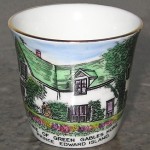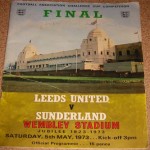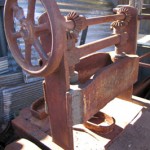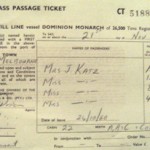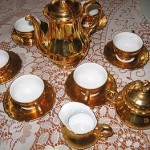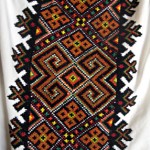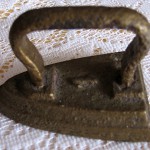Canadian
Toronto, Canada
Toronto, Canada in December 1972
Pyrmont, Sydney in December 1972
Friend’s parents’ home in West Ryde, Sydney
Painting jewellery at Drummoyne, Sydney
Pressing Afghani shirts at retailer, The Kyber Pass, Paddington, Sydney; credit card billing at Farmers; fashion publicity assistant; arts publicist.
I was born in 1951 and grew up near Toronto, Canada. Always hated the cold and the snow and my sister was going to live in England. So being 18 when she asked me [to join her], I said fine. We drove to New York, because she wanted to take her car, and we took a ship across the North Atlantic. That would have been December 1970.
There were a lot of Australians in London and I had travelled around Ireland with a girl from Melbourne. So it was an adventure knowing I could come [to Australia] and everyone said it was quite easy to live there. I think at that point if you were under 26, you could work in Commonwealth countries, which is why I could work in England and Australia.
After the first winter [in England] I promised myself I would never spend another [one there] and saw an advertisement for the ship-jet to Australia via Singapore. It was fairly common at the time as a way of getting here. It was just after the five week ship journey that people used to take, but no-one could really afford the flight, so they had done this combination. I went back to Canada to make the £99 fare because I could do that faster there.
I don’t think my family were particularly happy about me going to Australia. My stepfather, being English, could not understand why I was going to Australia. He had a memory of rowdy Australians from the war. I suspected a hidden agenda – that I won’t go if I’m not helped – but that didn’t work.
In December ’72 I took a ship-jet to Australia. I recall my parents were working in Brazil on a Canadian Government assistance program so they weren’t there to wave me cheerfully goodbye. I closed up their house and got on the plane. I flew out of Toronto, came back to London for a few weeks, got my £99 ticket and then flew to Singapore and had a day [there before going] on the ship, Patris. I think it was part of a Greek shipping line which at that point had sticky floors and a waiter [who] pulled up his sleeve at the table and said, “any one want to buy a watch?” He had all these watches on his arm. So it wasn’t the classiest of ships.
I considered getting out at Fremantle and travelling across the country. Then I saw the map and realised it was a vast desert and thought me with my thumb out wasn’t really going to work! So I kept on the ship to Melbourne and then Sydney. It was just another adventure. I had no idea I would stay here as I have. It was just another trip, another place to go.
I didn’t understand the Menzies era, the Liberals being in power for so long and the effect it had on the country and the excitement of Gough Whitlam. When we left Singapore it was the election that Whitlam [won] and word filtered onto the ship. Everybody was, I remember, extremely excited and rattled off a number of things he promised to do straight away. It was a new beginning and everyone was really hopeful; probably similar to when Tony Blair got in [in the UK].
Other memories of Australians were that a few sang Waltzing Matilda and some ran off the ship at Fremantle to get a decent milkshake. I had no idea that not having a decent milkshake was so important! It did go through my mind, oh dear, what have I come to?
As we went on to Melbourne I considered getting out because I knew somebody there, but I ended up spending the day with her, got back on the ship and came to Sydney. We came through the Heads at 6am and someone said I really should get out, it’s really beautiful. So I did and got up. It was one of those really clear Sydney December mornings. I just had this feeling that I had come to where I was supposed to be. It was like coming home. It was just fantastic.
I remember going under the Bridge, seeing the big mouth of Luna Park, wondering what it was. Docked at Pyrmont, because the Patris certainly wasn’t docking at the Quay, it wasn’t that style. I only had a little blue backpack when I first came here. Two English guys said they’d share a taxi with me into the city and kept shaking their heads saying it’s not like the brochures. I got let off at Woolworths corner, opposite Town Hall in George Street, and used a payphone to ring one of the people I knew. [My friend] told me to take the train to St. Leonards and I stayed at his parents’ place at West Ryde.
He took me to this party and introduced me to a woman who had just moved into a house in Rozelle and was looking for someone to rent a room for $12 a week. I moved in about two days later and lived there on and off for about five years. I’m still friends with her!
See, the thing that I love about Australia, I landed on my feet. I met people I liked. People were really warm and friendly. I got work through people I knew. Everything just worked out. I never really stumbled. You lived really well even though it didn’t cost you a lot of money. You know, it didn’t cost a lot to go to the beach or sit in a park, and the weather had a lot to do with it because it was gorgeous and we’d have parties and afford to drink and eat. After two years in London, you can actually afford meat! It was really quite easy.
My very first job was for somebody who made jewellery in a little place in Drummoyne. It was in the time of astrological science and marijuana leaves. Starsigns and leaves were dipped in silver or gold paint and put on a very tacky chain. My job was to whack black paint over the top to antique them. He sold thousands of these things and paid me $2 an hour. Because I was at Rozelle, I could often walk, which saved the bus fare [of] 25 cents.
Then I worked at a shop called The Khyber Pass in Oxford Street, Paddington where they got shipments of things from Afghanistan. They used to pay me to press all the shirts that arrived – the square top shirts with the embroidery on the front. I ran the shop for them for a while.
Another job was a straight clerical job, at which used to be called Farmers, now Grace Brothers/Myers, and we used to do the billing on credit cards. But I left that job because some friends were going to Tasmania and I thought that sound[ed] more fun. At that stage you could pick up jobs really easily so there was no fear of wandering in and out of [them].
When I came through customs at Fremantle, I was asked how long I wanted to stay to see if 12 months in my passport was required. I said, “don’t be ridiculous, I won’t be here more than six. I’m only here for the summer.” But the 12 month stamp was given. After 12 months I surprisingly found myself still here, loving it, so I trotted off to get an extension on my travelling visa. When I got my passport back they had given me permanent residency without even requesting it. People weep when I tell them that story now and I imagine people on Christmas Island will weep even louder, but that’s exactly what happened for me. And that was in November ’73.
Then I decided I’d been in Australia long enough and should go back to Canada and settle. So the following April in ’74, I bought a ticket back to Canada. I was not happy and it was just horrible to live there. The winter was coming and it was just awful and I thought what in the world am I doing? I think it might be something about being born in the wrong place. I never was a very good Canadian, whereas now I feel very Australian. I know you won’t believe it, but I’ve been stopped by Australians overseas and they’ve said to me, “are you Australian?”
Anyhow, so in January ’75, I came back to stay. And that was it. I was coming back to settle here, so I was bringing what I wanted to have with me. One is a very small shell with the Lord’s Prayer engraved on it. I’m quite staggered at how many words have fitted!
It belonged to my grandmother. She’s my mother’s mother and lived with us; my father died when I was young and my mother had to go to work, so my grandmother was my carer. The shell was always with her. It fascinated me from the minute I could read and was something she let me have, hold and look at. She died when I was 15 [and] it was something I’ve always kept.
She was not a religious person; as a matter of fact she changed religions a few times! My mother thinks possibly my grandmother was given the shell as a child. They were common if people went to the coast on holiday.
This little eggcup is from another period of my childhood. Anne of Green Cables is associated with Canada and when I was a very young teenager, I played the minister’s wife at a school play. My aunt’s memento of being in the play is this little eggcup and I’ve always kept it. I think it was meant to be because it has never broken or chipped or anything. [The eggcup] takes me back because of course, at school, kids tended to get the giggles on stage a bit!
I was so glad to be back [in Australia]. That’s the period of time when my partner and I certified our relationship and we travelled up the coast, spending a lot of time in broken-down Volkswagen beetles. Once we came back to Sydney, rents in Balmain had gone up to $50 a week and so it was actually cheaper to borrow $20,000 and buy a house. We split it in half and my first mortgage was $198 a month. Yep, you weep now.
It was a little timber cottage in Lilyfield which we stayed in for 11 years. Then we did the big Edwardian number in Petersham and built a house in Kangaroo Valley and bought a flat in Elizabeth Bay.
I moved on in work and it was again all about who you know. One [job] was new applications for Diners Club, and about two months later a friend of mine told me that her mother, who was the knitting editor for Woman’s Day, was sharing offices with the fashion editor who was offered a big job doing the publicity at David Jones and was looking for an assistant. Georgia Swift was her name. I met her and she said, “yes, yes, yes; you have an open honest face, you’ll be marvellous!” So she and I toddled off to David Jones in Elizabeth Street in the city. It was run like an ad agency with one client, being David Jones, and it had life studios, fashion studios and an army of photographers. That was my introduction to doing publicity and I worked for her for two years, then started going off in other areas of publicity – arts, film, theatre, books – which is what I still do!
My mother has visited [Australia] and totally understands why I live here. Every year I go back and visit her for her birthday in September. She now lives out of Vancouver and [I feel like] a complete stranger because it’s not the area I grew up in. She misses me but understands.
Interviewed by:
Andrea Fernandes, NSW Migration Heritage Centre
8 August 2006


![Annie Page with her grandmother's shell "It belonged to my grandmother [and] the shell was always with her. It fascinated me from the minute I could read and was something she let me have, hold and look at. She died when I was 15 [and] it was something I’ve always kept."](../../../cms/wp-content/uploads/2008/10/photo224.jpg)
!["It belonged to my grandmother [and] the shell was always with her. It fascinated me from the minute I could read and was something she let me have, hold and look at. She died when I was 15 [and] it was something I’ve always kept."](../../../cms/wp-content/uploads/2008/10/shell-150x150.jpg)
